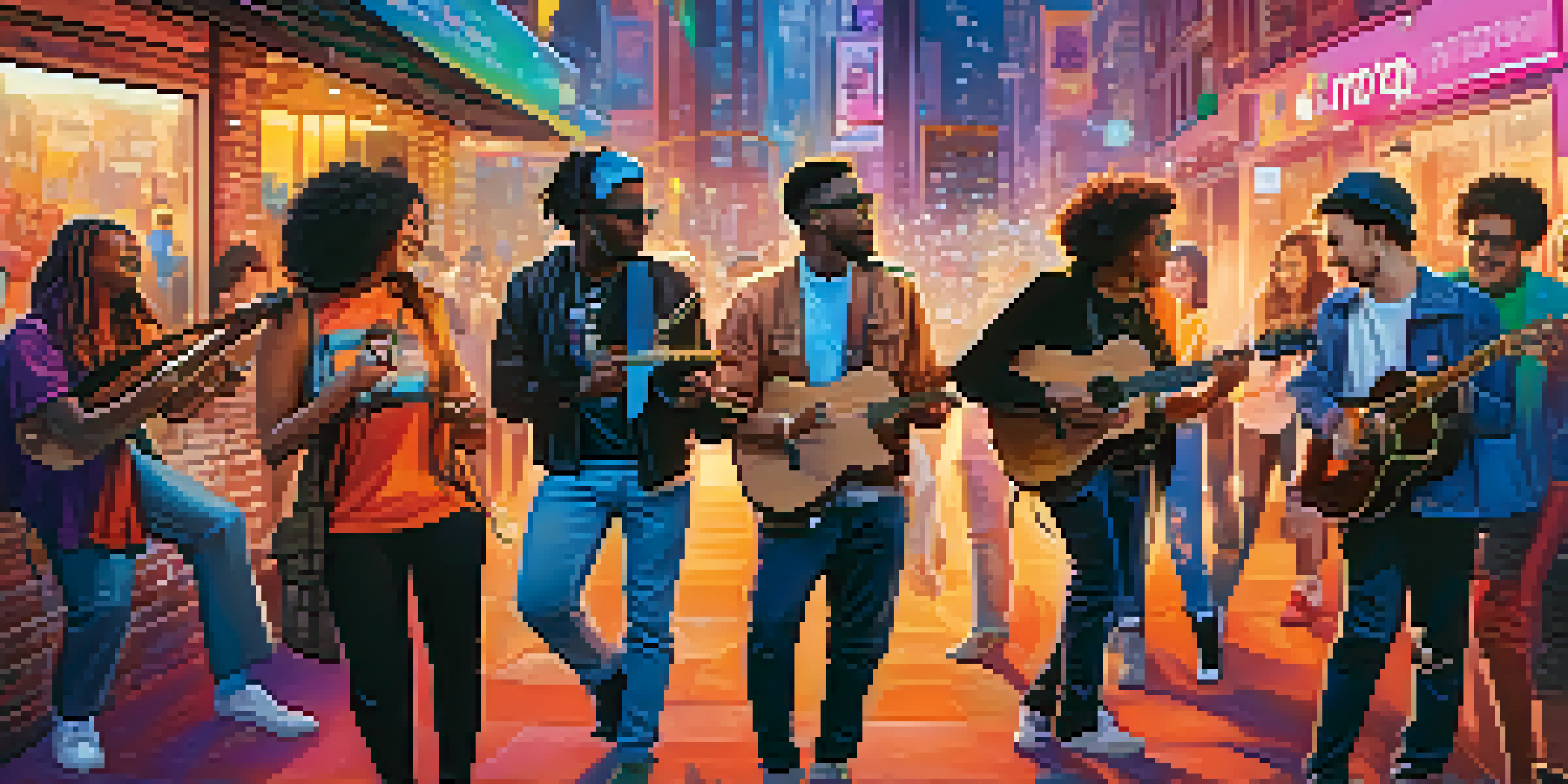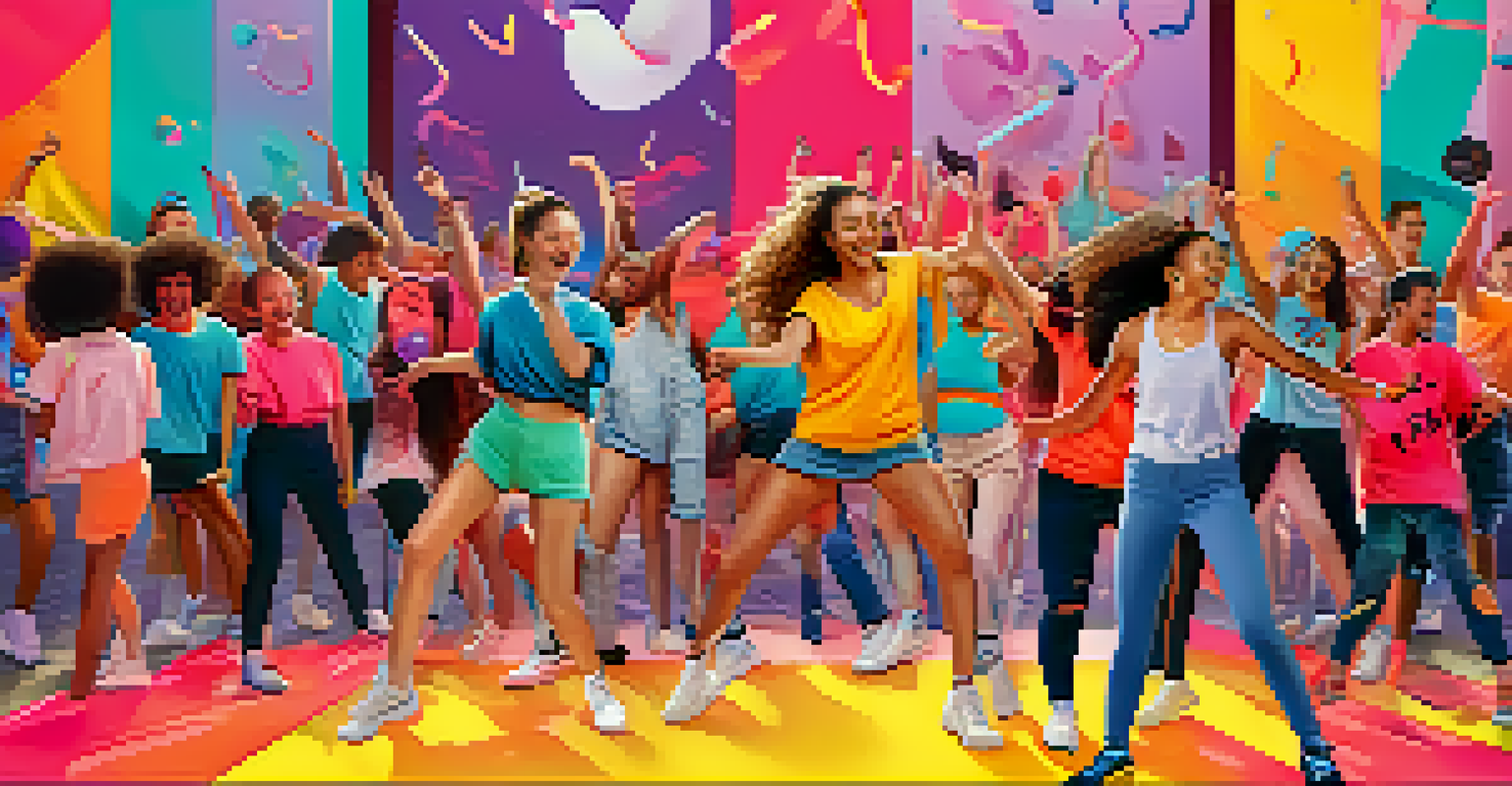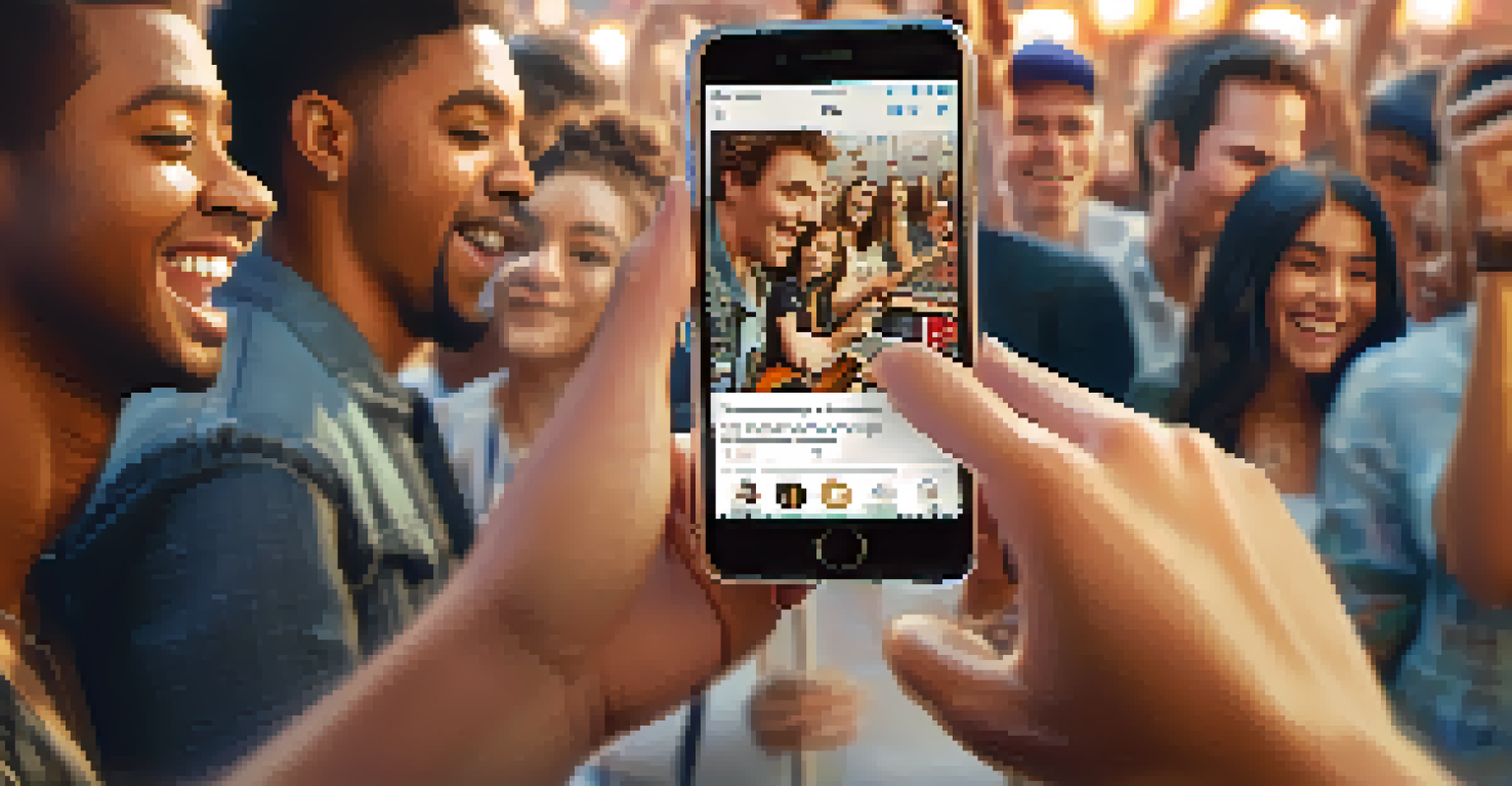How Social Media Influences Music Chart Success Today

Social Media: A Game Changer for Music Promotion
In today's digital age, social media has transformed how music is promoted and consumed. Artists now have direct access to their fans, allowing for real-time engagement and feedback. This immediate connection fosters a sense of community and loyalty that traditional marketing methods simply can't replicate.
Social media is not just an interaction; it's a relationship that artists can cultivate with their fans.
Platforms like Instagram, TikTok, and Twitter enable musicians to share snippets of their work, behind-the-scenes content, and personal stories. This transparency allows fans to feel more connected to the artists, which can boost their willingness to support new releases. For instance, viral challenges or trends on TikTok can propel a song to chart success almost overnight.
Moreover, social media's ability to amplify reach means that a single post can expose a song to millions. This democratization of promotion enables even independent artists to break into the mainstream, changing the landscape of the music industry.
The Role of Viral Trends in Music Success
Viral trends have become a crucial part of music marketing, often determining a song's chart performance. When a song aligns with a trending challenge or meme, it stands a higher chance of gaining traction. For instance, the song 'Savage Love' gained immense popularity after users started creating dance challenges on TikTok.

These viral moments not only lead to increased streams but also enhance visibility on music platforms. Consequently, songs can climb charts rapidly, showcasing how interconnected social media and music success have become. The spontaneity of trends means that an artist's song can go from obscurity to viral sensation in a matter of days.
Social Media Transforms Music Promotion
Artists now leverage social media platforms to engage directly with fans, creating community and boosting support for new releases.
Additionally, the nature of social media allows for organic growth; audiences often feel more inclined to share content they enjoy. This sharing culture can turn a niche track into a chart-topping hit, demonstrating the power of community in the digital space.
Engagement Metrics: A New Success Indicator
In the age of social media, engagement metrics such as likes, shares, and comments serve as vital indicators of a song's potential success. Record labels and artists closely monitor these metrics to gauge audience interest and tailor their promotional strategies accordingly. A song that generates buzz online is more likely to perform well on traditional music charts.
Music is a universal language that connects us all, and social media helps amplify that connection.
Platforms like Spotify and Apple Music also track social media interactions, integrating these metrics into their algorithms. This means that songs with higher engagement can receive more prominent placement on playlists, further enhancing their visibility. For artists, understanding this interplay between social media engagement and chart performance is essential.
Thus, a song's success is no longer solely based on sales or radio play; social media engagement has become a key player in determining chart rankings. This shift empowers artists to leverage their online presence strategically, making it a crucial part of their overall music marketing plan.
Collaborations with Influencers and Creators
Collaborating with social media influencers has become a popular strategy for artists aiming to boost their visibility and chart success. Influencers often have dedicated follower bases that trust their recommendations, making them ideal partners for music promotion. When an influencer shares a new track, it can lead to spikes in streaming numbers and chart positions.
For example, many artists have seen their songs climb the charts after being featured in influencer-led content, such as dance videos or lifestyle vlogs. This synergy between music and influencer marketing creates a win-win situation. Artists gain exposure, while influencers provide fresh content that resonates with their audiences.
Viral Trends Drive Music Success
Aligning songs with popular viral trends can significantly enhance their visibility and chart performance, showcasing the power of social sharing.
As a result, the musician's reach expands beyond traditional audiences, tapping into new demographics. This collaboration strategy highlights the innovative ways artists are using social media to not just promote their music but also redefine what it means to achieve success in the industry.
Fan-Driven Campaigns: Empowering Audiences
Social media empowers fans to drive campaigns that can significantly influence a song's chart performance. Whether through hashtag movements or fan-created content, audiences are taking an active role in promoting their favorite artists. This grassroots approach often leads to increased streams and visibility on music charts.
For instance, campaigns like #JusticeFor[ArtistName] have sparked conversations and brought attention to underappreciated tracks, leading to their resurgence in popularity. Fans rallying together can create a powerful wave of support that artists may not achieve through traditional marketing alone.
This shift in power dynamics not only emphasizes the importance of community but also showcases how artists can thrive by fostering authentic relationships with their fans. In this new era, the audience is not just passive consumers; they're active participants in an artist's journey.
Data Analytics: Understanding Audience Behavior
Data analytics plays a crucial role in how artists and record labels understand audience behavior on social media. By analyzing trends, engagement, and streaming patterns, they can adapt their strategies to align with what fans want. This data-driven approach allows for more targeted marketing efforts, increasing the chances of chart success.
For example, social media platforms provide insights into which demographics are engaging with specific songs. This information can guide decisions about where to focus promotional efforts, such as targeting specific cities or age groups. Understanding audience preferences is key to crafting effective campaigns.
Data Analytics Shapes Music Strategies
Understanding audience behavior through data analytics enables artists and labels to tailor their marketing efforts for better chart outcomes.
Additionally, this data can inform future releases and collaborations, ensuring that artists remain relevant in an ever-evolving digital landscape. As the music industry continues to adapt, leveraging data analytics will be essential for navigating the complexities of social media-driven success.
The Future of Music and Social Media Integration
As we look ahead, the relationship between music and social media is only expected to deepen. With emerging platforms and technologies, artists will have more innovative ways to connect with audiences. Live streaming events, virtual concerts, and interactive experiences are just a few examples of how this integration will evolve.
Furthermore, as algorithms and user preferences shift, artists will need to stay agile and adapt their strategies to remain relevant. This means continuously engaging with fans and experimenting with new content formats. The future will likely see even more collaboration between musicians and social media platforms.

Ultimately, the success of music charts will continue to be influenced by the dynamic interactions between artists and their audiences. Embracing this evolution will be key for artists seeking to thrive in an ever-changing landscape.